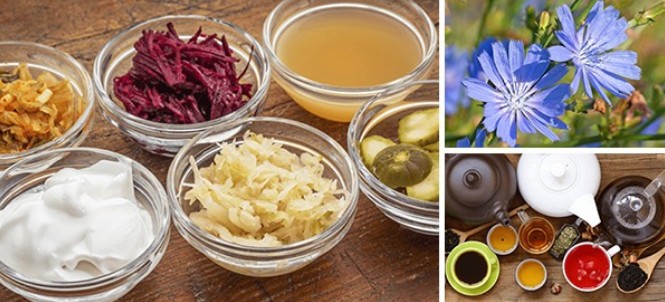 Feed Your Second Brain from the Field of Master Mind Health (MMH)
Feed Your Second Brain from the Field of Master Mind Health (MMH)
Shared from the research of: Joseph Mercado
Article Author: KJ Barber
Content Contributor: Nicole Apelian
To: Health Lover
Blog Post #968
Re: Gut Health
Date and Time: Wednesday, June 17, 2020 at 4:07 p.m.
Dear Health Lover,
While that might not sound appealing, knowing they are dwelling within us, they are quite beneficial and play a pivotal role in our overall health.
When we have a healthy balance of the flora, this helps provide a better environment for our immune system, promotes good digestive function, and helps to regulate our metabolism.
If the balance goes awry, especially long term, there is increased risk of the following:
- Digestive inconsistencies, such as bloating, gas, diarrhea, and/or constipation
- Cardiovascular disease
- Weight changes, either loss or gain
- Sensitivity or allergies to foods
- Skin disorders
- Fatigue
- Difficulty with concentration
- Mood swings.
The things and situations that contribute to imbalance and poor gut health include:
- Illness
- Eating too many processed foods
- Stress
- Excessive alcohol or drugs
- Aging
- Losing or gaining weight
- Oversea travels
- Some medications.
You can see there are a lot of things that can throw off your microbiome balance. The good news is that there are probably just as many ways to help keep, or even bring our gut flora back to a healthy balance:
1. Probiotics:
One of the simplest ways to improve your gut health is to take a probiotic, if you have any available. Probiotics are supplements meant to be taken for helping with gut health balance. They can be found in most grocery stores, pharmacies, health food stores, and online. They help support the microbiome and prevent inflammation, which leads to many intestinal issues.
However, maybe you are in a situation that prevents you from getting to the store. Fortunately, there are other options to consider, rather than taking a supplement.
Related: How to Make Cabbage Bandages to Treat Inflammation and Joint Pain
2.Fermented Foods:
Fermented foods help provide probiotics naturally. Consume any of the following on a regular basis, and you can improve your gut health:
- Sauerkraut
- Kimchi
- Kombucha
- Miso
- Kefir
- Tempeh
- Fermented Veggies.
If this is the only step you are planning on taking to help with gut health, make sure to eat at least half a cup (or more) of one of the above on a daily basis.
3. Less Sugars:
Eating too much sugar can cause all sorts of problems. Throwing off the balance of microbes in your gut is one of them. An over indulgence of sugar promotes bad bacteria to grow, which in turn can throw your digestive system in an uproar.
I am not suggesting that you cut out sugar completely, if you don’t want to remove it all from your diet. But, keep it in moderation. The best way to avoid too much sugar is to just stick to natural sugars that are added to your normal diet, and avoid sugary treats as much as possible.
4. Regular Exercise:
Exercise can help reduce stress, as well as maintain a healthy weight. This all helps with maintaining a healthy gut balance.
Probiotics feed on prebiotics, or non-digestible carbohydrates. This emboldens beneficial and necessary bacteria to multiply within the gut. To increase this process, consume prebiotic-rich foods in your diet, such as:
10 Easy Ways To Improve Your Gut Health
- Bananas
- Asparagus
- Garlic
- Onion
- Whole grains
- Chicory.
5. Too Much Stress:
Sometimes given advice is easier said than done. This is one of those times. But, managing stress levels is healthy for you on multiple levels, including gut health. Too much stress can be detrimental to our physical and emotional health, as well as our lives in general.
So, if you can’t remove yourself from the stressful situation, find a way to de-stress, such as meditation, or any other calming activity that works for you.
6. Unnecessary Antibiotics:
Antibiotics have their purpose. But they also have their drawbacks, especially if they are really not needed. Know what you have before starting an antibiotic, because if it won’t help, such as with most viruses, it’s getting into your system and messing with your gut health for no reason.
The CDC (Center for Disease Control and Prevention) claims that 30% of prescribed antibiotics are unnecessary. If you can treat your ailment without an antibiotic, you should try doing so. However, this is NOT medical advice and should not replace the advice of your physician. It’s simply a recommendation that you ask your doctor questions, especially if you are unsure.
8. Sleep:
Another one of those easier said than done bits of advice, I know. But a balanced sleep pattern can help with many health issues, which in turn will affect your gut health. Everyone is different, but on average, an adult should get about 7-8 hours of sleep each night.
9. Smoking Habits:
It’s not just a sign. It’s also good advice in achieving and maintaining overall good health. Not only can it contribute to a significant health crisis, such as cancer or heart disease, but smoking can also throw off gut flora.
10. Meat-wise:
If you aren’t already, becoming a vegetarian may improve your gut health. Some studies have noticed differences in the microbiomes from those who eat meat, and those who do not. One reason is believed that a vegetarian diet consists of more prebiotic fiber, which as mentioned above, helps with gut health.
At the very least, implementing the above recommendations can improve your health in general. But there are many people who claim that their gut health has improved as well. Please note though, any major changes to your diet should be approved by your physician, who might already have you on the healthiest path for you and your particular health.
Content Source: TheLostHerbs.com

 Email Us a Message
Email Us a Message 

Please send us an email message below and we will serve you momentarily.





 Fly Over to the MMU Facebook Page with Hoot
Fly Over to the MMU Facebook Page with Hoot 

 Join the MMU Facebook Group Today
Join the MMU Facebook Group Today 